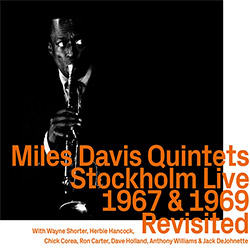
Two live recordings from Miles Davis in the 1960s, first from Stockholm in 1967 with the classic 60s quintet of Miles, Wayne Shorter, Herbie Hancock, Ron Carter and Tony Williams; then two years later also in Stockholm with the "Lost Quintet" of Miles, Wayne Shorter, Chick Corea, Dave Holland and Jack DeJohnette, pushing new directions with tracks including "Bitches Brew".
In Stock
Quantity in Basket: 1
Log In to use our Wish List
Shipping Weight: 3.00 units
EU & UK Customers:
Discogs.com can handle your VAT payments
So please order through Discogs
Sample The Album:
Miles Davis-trumpet
Wayne Shorter-tenor saxophone
Herbie Hancock-piano
Ron Carter-double bass
Tony Williams-drums
Chick Corea-piano, electric piano
Dave Holland-double bass
Jack DeJohnette-drums
Click an artist name above to see in-stock items for that artist.
UPC: 752156113027
Label: ezz-thetics by Hat Hut Records Ltd
Catalog ID: ezz-thetics 1130
Squidco Product Code: 31704
Format: CD
Condition: New
Released: 2022
Country: Switzerland
Packaging: Cardboard Gatefold
Tracks 1-4 recorded at Konserthuset, Stockholm, Sweden, on October 31st, 1967.
Tracks 5-8 recorded at Folkets hus, in Stockholm, Sweden, on November 5th, 1969.
"Let me ask you, how many versions of Miles Davis do you recognize? Let us employ the word 'recognize' in terms of both, to identify and to approve. Listeners new to the world of Miles would be hard pressed to associate the artist seen and heard with Charlie Parker at New York's Three Deuces in 1947 with the same man performing in Montreux, Switzerland some forty years later. Both his look and his sound had changed, making him unrecognizable to most. Maybe a better word is unknowable. Next is the approval and endorsement aspect. Miles lost many supporters along the way. This happened when he returned from his self-imposed retirement in 1980, but also when his first great quintet of John Coltrane, Red Garland, Paul Chambers, and Philly Joe Jones broke up, same after disbanding his second great quintet, his lost quintet, et cetera, et cetera. A similar argument can be had if we reverse that linear timeline. Listeners that may have discovered Miles through the Grammy Award winning Tutu (1986) or his covers of Michael Jackson's "Human Nature," and Cyndi Lauper's "Time After Time" were surely confused by the rock/fusion of Bitches Brew (1970) and earlier iterations of Miles' sound.
Was there more than one Miles Davis? Could he be both the Prince of Darkness and the purveyor of cool? A drug addict and an athletic boxer? A hip bebopper and a proto-hippie? A flamboyant dresser and a shy vulnerable soul? A brutal misogynist and an insecure romantic? The answer is yes, and yes. Miles Davis was both a creator and a destroyer. His chameleon-like nature can be explained by the times in which he lived and created his art. These live recordings in Stockholm, Sweden, 1967 and 1969, illustrate how Miles' creative process was influenced by the moving parts of our world, social, cultural, and political.
First we must back up a bit. Miles' first great quintet had disbanded in 1959. John Coltrane recorded the sensational Giant Steps. That same year Ornette Coleman made The Shape Of Jazz To Come and followed it with Free Jazz. Jump forward to 1965, Malcolm X is murdered, Coltrane's A Love Supreme, and Albert Ayler's Spiritual Unity are released. The world was changing, so was the music. Miles put together his second great quintet with much younger men; Wayne Shorter was 30, Ron Carter 26, Herbie Hancock 23, and Tony Williams was just 18. Together the quintet recorded E.S.P, Miles Smiles, Sorcerer, and Nefertiti before the October 1967 Stockholm date heard here. Change was in the air fueled by escalation of the Vietnam war and the passing of the Civil Rights Act. Jazz had begun to lose its dominance, evidenced by the 1967 Monterey Pop Festival with performances from The Grateful Dead, Jimi Hendrix, The Who, and Jefferson Airplane. The hit Broadway play Hair opened, signaling a mainstream acceptance of hippie counter-culture. Miles was aware of the shifting tides as he witnessed his record label, Columbia, dropping Thelonious Monk, Dave Brubeck, and Duke Ellington from their roster.
The 1967 Newport Jazz Festival European tour might have been the adieu for the night club Miles Davis. Although he and his young ensemble were sporting tuxedos, the tone was one of audacity. Besides Shorter's "Footprints" and the new Davis composition "Agitation," the music was drawn from the familiar. Monk's "Round Midnight," Jimmy Heath's "Gingerbread Boy" and the standard closer "The Theme" are covered. The familiar, however, yielded to experimental, and the compositions were merely the foundation to build Miles' new house on. Miles allowed and encouraged the band to push and pull the music in new directions. Miles treated Shorter, Hancock, Carter, and Williams as equals, instead of sidemen.
After the 1967 tour, the spinning world picked up greater speed. Martin Luther King was assassinated, as was Bobby Kennedy. Riots occurred in Paris and Chicago. Tommy Smith raised a defiant Black Power fist at the Mexico Olympics. The Woodstock Festival featured artists such as Ravi Shankar, Santana, Jimi Hendrix, and Sly and the Family Stone, and man walked on the moon. Miles was tuned into it all.
In 1968 He recorded Miles In The Sky and Filles De Kilimanjaro and in 1969, In A Silent Way and Bitches Brew before setting off on this European tour. Electric guitars and pianos were ushered in as were the new musicians Chick Corea, Dave Holland, and Jack DeJohnette. Just as he was for Sonny Rollins and John Coltrane, Miles was the catalyst that launched the careers of Hancock (Mwandishi to Future Shock), Williams (The Tony Williams Lifetime), Carter (the most recorded bassist in jazz), and Shorter (Weather Report and beyond).
Although we now know what was coming, the jazz/rock fusion and wah-wah pedal trumpet of Bitches Brew wouldn't be released until March of 1970. Miles returned to Stockholm in 1969 with a new quintet. Dubbed 'The Lost Quintet,' the Davis, Shorter, Corea, Holland, and DeJohnette ensemble, who can be heard on Bitches Brew, never recorded a proper studio album. Bootlegs and European radio and television broadcasts are the only evidence of this quintet.
In Stockholm 1969, gone are the tuxedos, replaced by colorful scarves, vests, and flared pants. Besides the introduction of Miles' composition "Bitches Brew," the quintet relies upon music by Shorter and Corea. Davis was phasing out his standard repertoire and ushering in a more free sound. Corea switched between acoustic and electric piano as DeJohnette incorporates rock and funk into his jazz drumming. The audacity of 1967 is replaced by the ferocity of 69. From the Stonewall riot to urban unrest, Miles' quintet captured the chaos and mayhem in these performances."-Mark Corroto, February 5, 2022.
Artist Biographies
• Show Bio for Miles Davis "Miles Davis, in full Miles Dewey Davis III, (born May 26, 1926, Alton, Illinois, U.S.-died September 28, 1991, Santa Monica, California), American jazz musician, a great trumpeter who as a bandleader and composer was one of the major influences on the art from the late 1940s. Davis grew up in East St. Louis, Illinois, where his father was a prosperous dental surgeon. (In later years he often spoke of his comfortable upbringing, sometimes to rebuke critics who assumed that a background of poverty and suffering was common to all great jazz artists.) He began studying trumpet in his early teens; fortuitously, in light of his later stylistic development, his first teacher advised him to play without vibrato. Davis played with jazz bands in the St. Louis area before moving to New York City in 1944 to study at the Institute of Musical Art (now the Juilliard School)-although he skipped many classes and instead was schooled through jam sessions with masters such as Dizzy Gillespie and Charlie Parker. Davis and Parker recorded together often during the years 1945-48. Davis's early playing was sometimes tentative and not always fully in tune, but his unique, intimate tone and his fertile musical imagination outweighed his technical shortcomings. By the early 1950s Davis had turned his limitations into considerable assets. Rather than emulate the busy, wailing style of such bebop pioneers as Gillespie, Davis explored the trumpet's middle register, experimenting with harmonies and rhythms and varying the phrasing of his improvisations. With the occasional exception of multinote flurries, his melodic style was direct and unornamented, based on quarter notes and rich with inflections. The deliberation, pacing, and lyricism in his improvisations are striking. [...]" ^ Hide Bio for Miles Davis • Show Bio for Wayne Shorter "Wayne Shorter (born August 25, 1933) is an American jazz saxophonist and composer. Shorter came to prominence in the late 1950s as a member of, and eventually primary composer for, Art Blakey's Jazz Messengers. In the 1960s, he joined Miles Davis's Second Great Quintet, and then co-founded the jazz fusion band Weather Report. He has recorded over 20 albums as a bandleader. Many Shorter compositions have become jazz standards, and his music has earned worldwide recognition, critical praise and commendation. Shorter has won 11 Grammy Awards. He is acclaimed for his mastery of the soprano saxophone since switching his focus from the tenor in the late 1960s and beginning an extended reign in 1970 as Down Beat's annual poll-winner on that instrument, winning the critics' poll for 10 consecutive years and the readers' for 18. The New York Times' Ben Ratliff described Shorter in 2008 as "probably jazz's greatest living small-group composer and a contender for greatest living improviser". In 2017, he was awarded the Polar Music Prize." ^ Hide Bio for Wayne Shorter • Show Bio for Herbie Hancock "Herbert Jeffrey Hancock (born April 12, 1940) is an American pianist, keyboardist, bandleader, composer and actor. Hancock started his career with Donald Byrd. He shortly thereafter joined the Miles Davis Quintet, where he helped to redefine the role of a jazz rhythm section and was one of the primary architects of the post-bop sound. In the 1970s, Hancock experimented with jazz fusion, funk, and electro styles. Hancock's best-known compositions include the jazz standards "Cantaloupe Island", "Watermelon Man", "Maiden Voyage", and "Chameleon", as well as the hit singles "I Thought It Was You" and "Rockit". His 2007 tribute album River: The Joni Letters won the 2008 Grammy Award for Album of the Year, only the second jazz album to win the award, after Getz/Gilberto in 1965. [...]" ^ Hide Bio for Herbie Hancock • Show Bio for Ron Carter "Ron Carter is among the most original, prolific, and influential bassists in jazz. He has recorded over 2200 albums, and has a Guinness world record to prove it! In Jazz: Over his 60 year career, he has recorded with so many of the jazz greats greats: Lena Horne, Bill Evans, B.B. King, Dexter Gordon, Wes Montgomery, Bobby Timmons, Eric Dolphy, Cannonball Adderley and Jaki Byard to name a few. From 1963 to 1968, he was a member of the acclaimed Miles Davis Quintet. In other genres: After leaving the quintet he embarked on a prolific 50-year free lance career that spanned vastly different music genres and continues to this day. He recorded with Aretha Franklin, appeared on the seminal hip-hop album Low End Theory with a Tribe Called Quest, wrote and recorded pieces for string quartets and Bach chorales for 2-8 basses and accompanied Danny Simmons on a spoken word album. As a leader: Carter spends at least half the year on worldwide tours with his various groups. The Ron Carter Trio, The Ron Carter quartet, the Ron Carter Nonet and Ron Carter’s Great Big Band. He has recorded multiple albums with his groups. As an author: Carter shares his expertise in the series of books he authored, where he explains his creative process and teaches bassists of all levels to improve their skills and develop their own unique sound. He also penned his autobiography “Finding the Right Notes” which is available in print and also as an audiobook read by the Maestro himself. As a teacher: Carter has lectured, conducted, and performed at clinics and master classes, instructing jazz ensembles and teaching the business of music at numerous universities. He was Artistic Director of the Thelonious Monk Institute of Jazz Studies while it was located in Boston and, after 18 years on the faculty of the Music Department of The City College of New York, he is now Distinguished Professor Emeritus, he currently teaches at Manhattan School of Music. In film scoring: In addition to scoring and arranging music for many films, including some projects for Public Broadcasting System, Carter composed music for A Gathering of Old Men, starring Lou Gosset Jr., The Passion of Beatrice directed by Bertrand Tavernier, and Blind Faith starring Courtney B. Vance. Film appearances: Most jazz documentaries feature the Maestro because of his indelible contribution to the genre. Ken Burns “Jazz”, “Birth of the Cool” about Miles Davis, "It Must be Schwing", the story of the Blue Note and many more. He also appeared as himself in HBO’s hit series “Treme” and was the bassist on soundtracks of Twin Peaks, Bird, and way too many others to mention. Education: Carter earned a bachelor of music degree from the Eastman School in Rochester and a master's degree in double bass from the Manhattan School of Music in New York City. He has also received five honorary doctorates, from the New England Conservatory of Music, Manhattan School of Music, University of Rochester, Juilliard and Berklee, and was the 2002 recipient of the prestigious Hutchinson Award from the Eastman School at the University of Rochester." ^ Hide Bio for Ron Carter • Show Bio for Tony Williams "Anthony Tillmon Williams (December 12, 1945 – February 23, 1997) was an American jazz drummer. Williams first gained fame in the band of trumpeter Miles Davis and pioneered jazz fusion. He was inducted into the Modern Drummer Hall of Fame in 1986. During his lifetime, music critic Robert Christgau described Williams as "probably the best drummer in the world". Williams was born in Chicago and grew up in Boston. He was of African, Portuguese, and Chinese descent. He studied with drummer Alan Dawson at an early age, and began playing professionally at the age of 13 with saxophonist Sam Rivers. Saxophonist Jackie McLean hired Williams when he was 16. At 17 Williams gained attention by joining Miles Davis in what was later dubbed Davis's Second Great Quintet. Williams was a vital element of the group, called by Davis in his autobiography "the center that the group's sound revolved around." His playing helped redefine the role of the jazz rhythm section through the use of polyrhythms and metric modulation. Meanwhile, he recorded his first two albums as leader for Blue Note label, Life Time (1964) and Spring (1965). He also recorded as a sideman for the label including, in 1964, Out to Lunch! with Eric Dolphy and Point of Departure with Andrew Hill. In 1969, he formed a trio, the Tony Williams Lifetime, with John McLaughlin on guitar and Larry Young on organ. Lifetime was a pioneering band of the fusion movement. Their first album was Emergency!. After the departures of McLaughlin and bassist Jack Bruce, who had joined the group for its second album, and several more releases, Lifetime disbanded. In 1975, Williams put together a band he called "The New Tony Williams Lifetime", featuring bassist Tony Newton, pianist Alan Pasqua, and English guitarist Allan Holdsworth, which recorded two albums for Columbia Records, Believe It and Million Dollar Legs. In mid-1976, Williams was a part of a reunion with his colleagues from the Miles Davis band: keyboardist Herbie Hancock, bassist Ron Carter, and saxophonist Wayne Shorter. Davis was in the midst of a six-year hiatus and was "replaced" by Freddie Hubbard. The record was later released as V.S.O.P. The group toured and for several years and a series of live albums were released under the name "V.S.O.P." or "V.S.O.P.: The Quintet". In 1979, Williams, McLaughlin and bassist Jaco Pastorius united for a one-time performance at the Havana Jazz Festival. This trio came to be known as the Trio of Doom, and a recording of their performance (along with some studio tracks recorded in New York shortly thereafter) was released in 2007. It opens with a powerful drum improvisation by Williams, followed by McLaughlin's "Dark Prince" and Pastorius' "Continuum", Williams' original composition "Para Oriente" and McLaughlin's "Are You the One?" Williams and Pastorius had also played together on the Herbie Hancock track "Good Question" from his 1978 album Sunlight. With the group Fuse One, Williams released two albums in 1980 and 1982. In 1985, he returned to Blue Note and the result was a series of recordings for the label beginning with Foreign Intrigue, which featured the playing of pianist Mulgrew Miller and trumpeter Wallace Roney. Later that year he formed a quintet with Miller, Roney, saxophonist Bill Pierce, and bassist Charnett Moffett (later Ira Coleman). This band played Williams' compositions almost exclusively. Williams also played drums for the band Public Image Limited, fronted by John Lydon (a.k.a. Johnny Rotten of the Sex Pistols), on their release Album/Cassette/Compact Disc (1986, the album title varied depending on the format). He played on the songs "FFF", "Rise" (a modest hit), and "Home". Bass guitarist Bill Laswell co-wrote those three songs with Lydon. The other drummer on that album was Ginger Baker. Williams lived and taught in the San Francisco Bay Area until his death from a heart attack following routine gall bladder surgery. One of his final recordings was The Last Wave by the trio known as Arcana, a release organized by Bill Laswell." ^ Hide Bio for Tony Williams • Show Bio for Chick Corea "Armando Anthony "Chick" Corea (June 12, 1941 - February 9, 2021) was an American jazz composer, pianist, keyboardist, bandleader, and occasional percussionist. His compositions "Spain", "500 Miles High", "La Fiesta", "Armando's Rhumba", and "Windows" are widely considered jazz standards. As a member of Miles Davis's band in the late 1960s, he participated in the birth of jazz fusion. In the 1970s he formed Return to Forever. Along with McCoy Tyner, Herbie Hancock, and Keith Jarrett, Corea is considered to have been one of the foremost jazz pianists of the post-John Coltrane era. Corea continued to collaborate frequently while exploring different musical styles throughout the 1980s and 1990s. He won 27 Grammy Awards and was nominated more than 70 times for the award. [...]" ^ Hide Bio for Chick Corea • Show Bio for Dave Holland "Dave Holland is a bassist, composer, bandleader whose passion for musical expression of all styles, and dedication to creating consistently innovative music ensembles have propelled a professional career of more than 50 years, and earned him top honors in his field including multiple Grammy awards and the title of NEA Jazz Master in 2017. Holland stands as a guiding light on acoustic and electric bass, having grown up in an age when musical genres-jazz, rock, funk, avant-garde, folk, electronic music, and others-blended freely together to create new musical pathways. He was a leading member of a generation that helped usher jazz bass playing from its swing and post-bop legacy to the vibrancy and multidiscipline excitement of the modern era, extending the instrument's melodic, expressive capabilities. Holland's virtuosic technique and rhythmic feel, informed by an open-eared respect of a formidable spread of styles and sounds, is widely revered and remains much in demand. To date, His playing can be heard on hundreds of recordings, with more than thirty as a leader under his own name. Holland first rose to prominence in groundbreaking groups led by such legends as Miles Davis, Stan Getz, Sam Rivers, Betty Carter, and Anthony Braxton-as well as collaborations with the likes of Chick Corea, Gary Burton, Jack DeJohnette, and John McLaughlin. Carrying such an enviable history Holland does with little fanfare and extreme humility; to him what matters most is the immediate musical project at hand. Fittingly, he is today more celebrated for the bands that he continues to assemble, record and perform with-ensembles which range from duos and trios to big bands, and often feature musicians like Steve Coleman, Robin and Kevin Eubanks, Jason Moran, Chris Potter, Eric Harland, among many others who were bound for their own headline-status. The consistent priority connecting all of Holland's projects is an abiding sense of challenge-to himself, his fellow musicians, and his listeners. His comments on this driving force in his career serve as a personal credo: "My take on the relationship with the audience is that you don't want to underestimate their ability to hear the music. You want to be as clear as possible in your musical statement and not be obscure in terms of what it is you're doing. At the same time, you don't want to compromise on your creative ambitions because that's the driving force that's going to develop the music and keep it relevant for me. Outside of the audience, there's the aspect of me needing to be interested in what I'm doing and be stimulated by it in a challenging situation which is going to continue to allow me to grow as a player and composer." Holland was born in Wolverhampton, United Kingdom in 1946, and even before reaching puberty played ukulele and then guitar, having fallen under the spell of skiffle music like most British youth during the 1950s and early '60s. As an adolescent, he switched over to the low end of the string family, an uncle fabricating his first "tea-chest bass" out of the thin wooden crates in which tea was shipped. The bass ultimately proved the instrument that steered him away from a working-class destiny. At the ripe age of 14, he began playing R&B, rock and pop tunes for dances and in clubs with local bands, and visiting U.S. artists like Roy Orbison, Chet Atkins, and Johnnie Ray. By his late teens Holland began exploring an expanding palette of jazz styles and it was clear that music was Holland's calling. The search for more opportunities, experience, and advanced music education led the young bassist to journey from The Midlands to work in London in 1964, where he began to study with James Edward Merrett, the principal bassist with the London Philharmonic. A year later, Merrett recommended him for a scholarship to the Guildhall School of Music and Drama and Holland was on his way. The mid-'60s were an exciting time to be in "Swinging" London: the U.K. was pulling itself free from an extended postwar, economic decline and a whirlwind of fresh, cultural ideas (especially musical) was in the air. Holland was soon exploring more advanced classical and avant-garde music, as well as the work of jazz bass masters from Ray Brown, Leroy Vinegar and Charles Mingus, to Scott LaFaro, Jimmy Garrison, Ron Carter and Gary Peacock. He began to perform regularly with bands fronted by leaders at the cutting edge of the U.K. jazz scene: Tubby Hayes, Ronnie Scott, Chris McGregor, Evan Parker, and John Surman. Holland was a mere 19 years old when he began to appear at Ronnie Scott's jazz club in London's Soho district, supporting touring jazz veterans like Ben Webster, Coleman Hawkins and Joe Henderson. That was the venue in which famed trumpeter Miles Davis-who was about to transition from purely acoustic music to more electric instrumentation in 1968, including rock and funk influences-first heard Holland. Davis asked him to take over the bass chair in his band at a time when generations of musicians and music fans were intensely focused on every step the trumpeter was taking. Joining Davis's groundbreaking, semi-electric band was the catapult that launched Holland's career to the international stage. As the world watched and listened, he contributed to albums that pointed the way to the future-Filles De Kilimanjaro, In A Silent Way, Bitches Brew-and performed in jazz clubs and rock festivals, helping to lay the groundwork for the rise of Fusion jazz, an important member of a brotherhood of innovators adept at older and newer jazz vocabularies. While still with Davis, Holland gigged and recorded with other musicians as well, including the Thad Jones/Mel Lewis Orchestra, Chick Corea, and Joe Henderson. Holland left Davis's employ in 1970 and immediately co-founded Circle-the influential if short-lived free-jazz quartet, with Corea, Anthony Braxton and Barry Altschul. After the breakup of Circle in late '71, Holland found himself working in bands led by the likes of Stan Getz, Thelonious Monk, Braxton, and initiating an enduring relationship with saxophonist/bandleader Sam Rivers. By 1972, Holland relocated to upstate New York, and began recording under his own name, beginning a long-standing association with the Munich-based ECM label. It was during this period of re-establishment that he began participating with vibraphonist Karl Berger's Creative Music Studio, and co-founded the Gateway Trio with John Abercrombie and Jack DeJohnette. Holland later joined Betty Carter's group for a year, and served as a sideman on a wide range of recording projects that featured blues singer/guitarist Bonnie Raitt, vocalist Maria Muldaur, and bluegrass heavyweights John Hartford, Norman Blake, and Vassar Clements. In '77, Holland began performing solo bass concerts, which led to the studio album Emerald Tears, which he later followed with the solo cello recording Life Cycle in '83. As the '80s began, Holland stepped forward with a working band of his own for the first time. The Dave Holland Quintet was comprised of alto saxophonist Steve Coleman, trumpeter Kenny Wheeler, trombonist Julian Priester, and drummer Steve Ellington. Their 1984 debut was well-received critically, and initiated a long run of groups that varied in musical approach-smaller lineups focusing on lengthy improvisations, larger ensembles dealing with intricate arrangements- and evolved as new arrivals, like drummer Marvin "Smitty" Smith and guitarist Kevin Eubanks, who all became part of Holland's creative circle. In 1990, Holland debuted Extensions-a quartet album featuring Kevin Eubanks, Coleman and Smith-that was voted Album of the Year by Downbeat magazine. A year later, on the same week, he recorded World Trio, featuring Eubanks on acoustic guitar and percussionist Mino Cinelu, and Phase Space, a duo album with Steve Coleman. These were followed in '93 by Holland's third solo effort, Ones All (both World Trio and Ones All were originally released on the Intuition label.) By '97, the Dave Holland Quintet included a mix of younger and veteran players, with vibraphonist Steve Nelson and trombonist Robin Eubanks (Kevin's brother) alongside saxophonist Chris Potter and drummer Billy Kilson (and later Nate Smith.) While most of his creative choices as a bandleader are the result of feel and intuition, Holland admits a conscious decision when it comes to combining musicians of varying levels of experience. "I'm an equal opportunity employer. I don't think about anything to do with gender, race or age. I'm looking for the music. I listen to the music with my ears, but at the same time, I am also conscious of the fact that it's very important that there is intergenerational contact in the music. Older players should play with younger players and vice-versa so we have a chance to cross-pollinate our influences and backgrounds. This is how the music grows and expands." In the 1990s, Holland's desire to focus on his compositional and arranging skills led to the formation of the Dave Holland Big Band, a group that that led to his notching two Grammy awards for Best Large Jazz Ensemble. Around the same time, he earned a third for an all-star quintet with old colleagues Burton, Corea, Pat Metheny and Roy Haynes. During the '90s, Holland also revisited a number of historic collaborations-including the Gateway Trio, and working with Herbie Hancock-and in the 2000s, Holland expanded his focus to new collaborations: the comically named "ScoLoHoFo" quartet featuring Joe Lovano, John Scofield, and Al Foster; as well as a duo with Jim Hall. In 2003, Holland departed ECM and formed his own label, Dare2 Records, on which he has issued almost all of his recent recordings. In 2005, Dare2 premiered with Overtime, a big band project including music commissioned by the Monterey Jazz Festival. A year later, Critical Mass featured his Quintet (the first with Nate Smith), and Pass It On in 2008, a sextet performing arrangements in a mini-big band style (with, among others, Robin Eubanks, pianist Mulgrew Miller, drummer Eric Harland.) In 2010, Holland released two recordings: the live octet album Pathways, and Hands, a duet with flamenco guitarist Pepe Habichuela. In 2013, Holland dug deeper into his Fusion roots, unveiling his quartet Prism with Harland, Kevin Eubanks, and keyboardist Craig Taborn; and a year later, Holland teamed up with pianist and longtime friend Kenny Barron to record The Art Of Conversation for the Blue Note label. The remarkable rate at which Holland leads or collaborates his way into fresh and exciting projects proves he has no plans to diminish the range nor frequency of his creative drive. His band lineups reveal that his ear is still to the ground, listening for and recognizing fresh and deserving talent, and that many are the musicians who are happy to perform or record with him. As Holland prepares to celebrate his 70th year, he is currently playing with a new group, the Aziza quartet, co-founded with Harland, saxophonist Chris Potter, and guitarist Lionel Loueke. As a leader and collaborator, Holland continues to tour the world and it comes as no surprise that he has and still serves the music in an educational role, having worked during the 1980s as artistic director of the Banff Centre's jazz summer program (Canada), and as a faculty member for two years at the New England Conservatory of Music in the '90s, where he still serves as an artist in residence (as he does at the Royal Academy of Music.) He has also been elected a Fellow of the Guildhall School-his alma mater-and has received honorary doctorates from Birmingham Conservatoire (UK), Berklee College of Music, and the New England Conservatory. Most recently, Holland was made an Honorary Member of the Royal Academy of Music (UK)-a rare honor as membership is limited to 300 living musicians-and he's been named a 2017 Jazz Master by the National Endowment for the Arts. Over the years and through countless musical experiences, Holland has come to define his purpose as a musician-and he articulates it well: "I'm trying to create music that exists on multiple levels, such as simpler elements along with more complex elements. To me, a lot of great art, whether it's visual, musical or written, has an ability to do those things-to offer some fundamental truths that echo in people, yet at the same time, introduce them to a new way of looking at those fundamentals that gives them a little different perspective..." ^ Hide Bio for Dave Holland • Show Bio for Jack DeJohnette "Jack DeJohnette (born August 9, 1942) is an American jazz drummer, pianist, and composer. An important figure of the fusion era of jazz, DeJohnette is one of the most influential jazz drummers of the 20th century, given his extensive work as leader and sideman for musicians including Charles Lloyd, Freddie Hubbard, Keith Jarrett, Bill Evans, John Abercrombie, Alice Coltrane, Sonny Rollins, Miles Davis, Joe Henderson, Michael Brecker, Herbie Hancock and John Scofield. He was inducted into the Modern Drummer Hall of Fame in 2007." ^ Hide Bio for Jack DeJohnette
6/25/2025
Have a better biography or biography source? Please Contact Us so that we can update this biography.
6/25/2025
Have a better biography or biography source? Please Contact Us so that we can update this biography.
6/25/2025
Have a better biography or biography source? Please Contact Us so that we can update this biography.
6/25/2025
Have a better biography or biography source? Please Contact Us so that we can update this biography.
6/25/2025
Have a better biography or biography source? Please Contact Us so that we can update this biography.
6/25/2025
Have a better biography or biography source? Please Contact Us so that we can update this biography.
6/25/2025
Have a better biography or biography source? Please Contact Us so that we can update this biography.
6/25/2025
Have a better biography or biography source? Please Contact Us so that we can update this biography.
Track Listing:
1. Agitation 6:58
2. Footprints 9:07
3. Round Midnight 8:30
4. Gingerbread Boy 7:38
5. Bitches Brew 14:39
6. Paraphernalia 9:20
7. Nefertiti 10:03
8. Masqualero 7:55
9. This 5:38
Hat Art
Improvised Music
Jazz
Free Improvisation
Quintet Recordings
Staff Picks & Recommended Items
Search for other titles on the label:
ezz-thetics by Hat Hut Records Ltd.


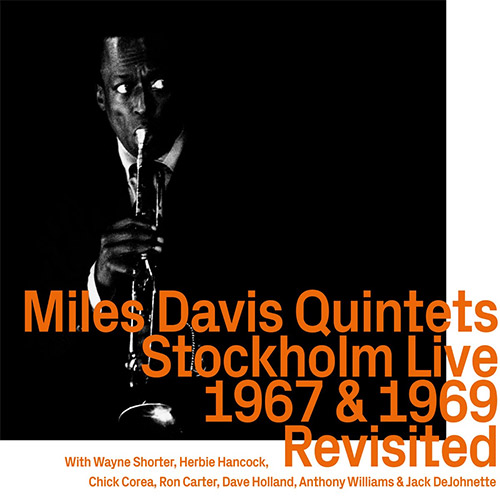
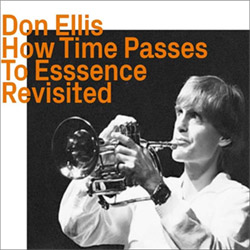


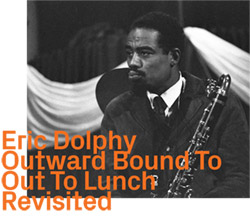
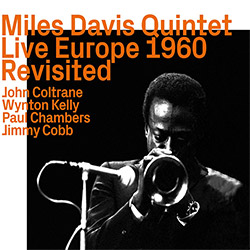


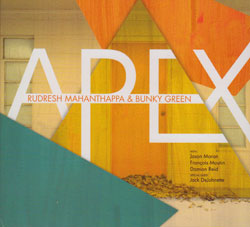
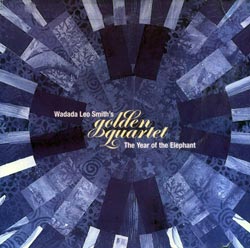

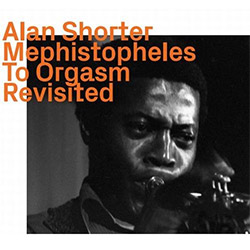
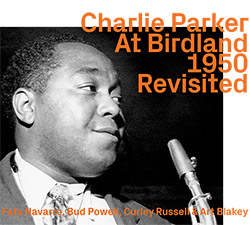

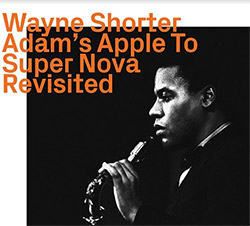

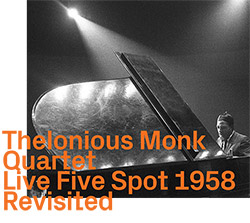

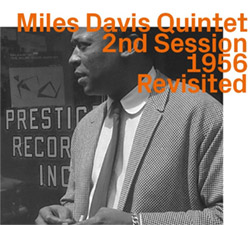
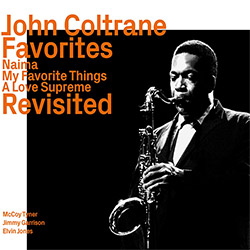

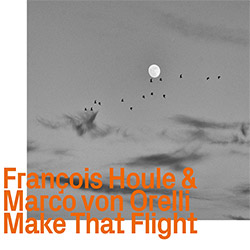








![Eternities: Rides Again [CASSETTE]](https://www.teuthida.com/productImages/misc4/36247.jpg)

![Lopez, Francisco: Untitled (2021-2022) [2 CDs]](https://www.teuthida.com/productImages/misc4/36438.jpg)




![Eventless Plot | Haarvol: The Subliminal Paths [CASSETTE + DOWNLOAD]](https://www.teuthida.com/productImages/misc4/36232.jpg)












![Eventless Plot | Francesco Covarino: Methexis [CASSETTE + DOWNLOAD]](https://www.teuthida.com/productImages/misc4/36231.jpg)

![Brown, Dan / Dan Reynolds: Live At The Grange Hall [unauthorized][CASSETTE]](https://www.teuthida.com/productImages/misc4/36245.jpg)





![Das B (Mazen Kerbaj / Mike Majkowski / Magda Mayas / Tony Buck): Love [VINYL]](https://www.teuthida.com/productImages/misc4/36329.jpg)


![Hemphill Stringtet, The: Plays the Music of Julius Hemphill [VINYL]](https://www.teuthida.com/productImages/misc4/36409.jpg)



![Halvorson, Mary Septet: Illusionary Sea [2 LPS]](https://www.teuthida.com/productImages/misc4/17952.jpg)




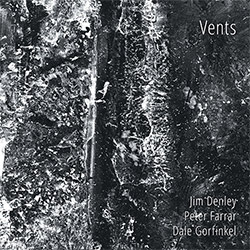
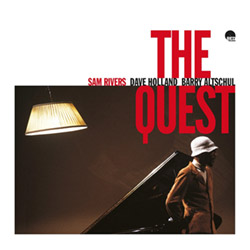
![Re-Ghoster Extended: The Zebra Paradox [VINYL]](https://www.teuthida.com/productImages/misc4/36204.jpg)
![FDF Trio: Possibility And Prejudices From Within A Cup [VINYL]](https://www.teuthida.com/productImages/misc4/36205.jpg)
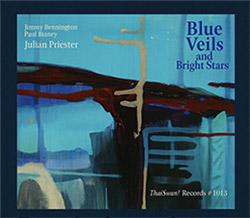

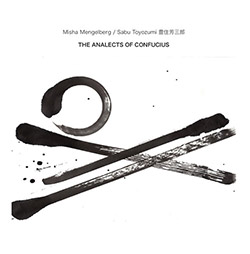

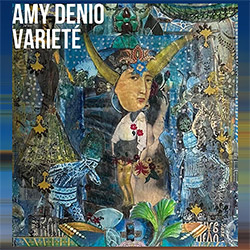



![Money : Money 2 [2 CDs]](https://www.teuthida.com/productImages/misc4/35894.jpg)




![Klinga, Erik: Elusive Shimmer [VINYL]](https://www.teuthida.com/productImages/misc4/36258.jpg)
![CHANGES TO blind (Phil Zampino): Volume 9 - I Wave on a Fine Vile Mist [CD + DOWNLOAD]](https://www.teuthida.com/productImages/misc4/36061.jpg)

![Wallmart / Rubbish: Asset Protection [split CD]](https://www.teuthida.com/productImages/misc4/35900.jpg)


![+Dog+: The Family Music Book Vol. 5 [2 CDs]](https://www.teuthida.com/productImages/misc4/35897.jpg)
![Kuvveti, Deli : Kuslar Soyledi [CASSETTE w/ DOWNLOAD]](https://www.teuthida.com/productImages/misc4/36107.jpg)

![Nakayama, Tetsuya: Edo Wan [CASSETTE w/ DOWNLOAD]](https://www.teuthida.com/productImages/misc4/36105.jpg)




![Yiyuan, Liang / Li Daiguo: Sonic Talismans [VINYL]](https://www.teuthida.com/productImages/misc4/35957.jpg)






![Palestine, Charlemagne / Seppe Gebruers: Beyondddddd The Notessssss [VINYL]](https://www.teuthida.com/productImages/misc4/36206.jpg)
![Palestine, Charlemagne / Seppe Gebruers: Beyondddddd The Notessssss [NEON GREEN VINYL]](https://www.teuthida.com/productImages/misc4/36207.jpg)

![Laubrock, Ingrid: Purposing The Air [2 CDs]](https://www.teuthida.com/productImages/misc4/35639.jpg)

![Yoko, Ono / The Great Learning Orchestra: Selected Recordings From Grapefruit [2 CDs]](https://www.teuthida.com/productImages/misc4/35841.jpg)









![Zorn, John / JACK Quartet: The Complete String Quartets [2 CDs]](https://www.teuthida.com/productImages/misc4/35609.jpg)

![Lonsdale, Eden: Dawnings [2 CDs]](https://www.teuthida.com/productImages/misc4/35480.jpg)



![Sorry For Laughing (G. Whitlow / M. Bates / Dave-Id / E. Ka-Spel): Rain Flowers [2 CDS]](https://www.teuthida.com/productImages/misc4/35985.jpg)

![Rolando, Tommaso / Andy Moor : Biscotti [CASSETTE w/ DOWNLOADS]](https://www.teuthida.com/productImages/misc4/36106.jpg)


![Electric Bird Noise / Derek Roddy: 8-10-22 [CD EP]](https://www.teuthida.com/productImages/misc4/35970.jpg)








![Elephant9 : Mythical River [VINYL]](https://www.teuthida.com/productImages/misc4/34624.jpg)



![Elephant9 with Terje Rypdal: Catching Fire [VINYL 2 LPs]](https://www.teuthida.com/productImages/misc4/35355.jpg)
![Deerlady (Obomsawin, Mali / Magdalena Abrego): Greatest Hits [VINYL]](https://www.teuthida.com/productImages/misc4/34876.jpg)







![Surplus 1980: Illusion of Consistency [CD]](https://www.teuthida.com/productImages/misc4/35069.jpg)
![Staiano, Moe: Away Towards the Light [VINYL + DOWNLOAD]](https://www.teuthida.com/productImages/misc4/35037.jpg)
![Coley, Byron: Dating Tips for Touring Bands [VINYL]](https://www.teuthida.com/productImages/misc4/17906.jpg)

![Lost Kisses: My Life is Sad & Funny [DVD]](https://www.teuthida.com/productImages/misc4/lostKissesDVD.jpg)